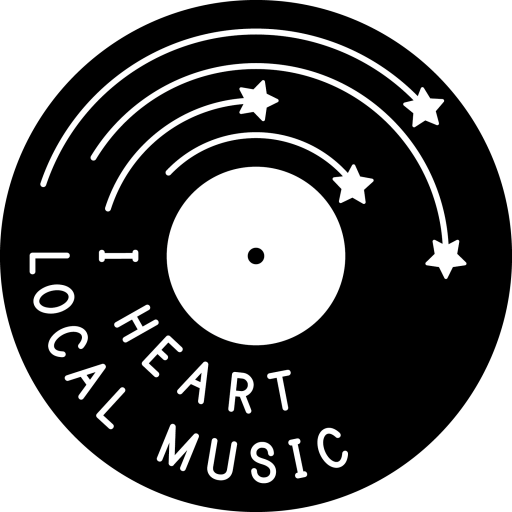One of the last times gypsy punks Gogol Bordello played Lawrence, it was on Halloween at Liberty Hall. If you were there, you’ll remember the absolute mayhem that ensued. It was costumed calamity surrounding one of the wildest live shows to ever grace a stage in Lawrence. Now, exactly a decade later, you’ll have the chance to relive that moment. In a grand stroke of luck and happenstance, Gogol Bordello will once again bring havoc to Halloween in Lawrence… but this time, it’ll be at the Granada.
The commander of this commotion is Eugene Hütz, the band’s rowdy yet eloquent, Ukranian-born frontman. Though Gogol Bordello has a knack for punk-infused ruckus, he insists you can’t expect the same show twice. “It’s an endlessly shape-shifting musical Rubik’s Cube,” he insists. “We have revolving female performers in the band that come out on different tours. But as soon as one of them misses even a week of shows and is replaced by another performer, when a person comes back, they’re lost because so much newness has taken place.” However, what will really stand out on this tour to support their recently-released Seekers and Finders is a full-blown horn section. Hütz was likely only half-joking when he indicated the horn section, something rarely seen onstage with them, will make “wildest musical fantasies come true.”
Playing the Mediator
But while the band has, in the past, been particularly picky on the political spectrum, that may not be something you’ll hear at their upcoming show. Hütz, a longtime supporter of Romani rights, says he sees the band’s music as having a far more insightful affect on the cultural climate here in America. While other punk bands have been quick to denounce specific politicians or policies, Hütz likened their shows to something more in tune with the Maharishi Effect (a study which saw correlations between meditation and violent crimes). “I see music somewhat similar to experiments like when they’ll gather 100 people to meditate in a city that’s particularly overwhelmed with crime, and by having a large enough amount of people meditating in the city, it results in bringing down the frequency of the feud and it actually does decrease crime,” says Hütz. “I see music having that kind of result, and the artist is the meditator in this case, obviously. That’s a more profound way of interacting because head-butting with anything is absolutely counter-productive. Hasn’t that become public knowledge yet?… because to actually sit around and discuss politics, I don’t find that to be inspiring on any level whatsoever.”
Cultural Super Collider
That introspective demeanor runs high on Hütz’s priority list, as he sees the need for self-expression on the rise in the U.S. “What is quite evident of the days we’re living in is a lot of people seem to be quite happy with taking on a costume of a particular kind and not really having anything to say, and just kind of drifting along in this numb, expressive swamp where everyone moves to the same beat made on a laptop,” he confides, adding that he sees Gogol Bordello as a cultural and informational super collider. “I’m very excited to see what kind of counter culture this particular bubble of time that we’re in is going to bring up, because it’s always minimal… but something of similar level significance must emerge, could be emerging right now, but it’s not visible yet.”
Hütz blames that lack of visibility on complacency in today’s society. “People do not have a second to themselves, and everyone is happy looking into a device and clicking, clicking things, feeling like they’re participating in something important. Everyone is happy to live in the same telephone. The world is living in the same telephone,” he laments. “I think there’s a huge crease in awareness of your own past and your own destiny. It’s a kind of character, it’s a character extinction. We’re on some character extinction, and I’m more than certain it’s going to go in reverse.”
While fighting that “character extinction” is something Hütz may want to accomplish through his music and performance, a lot of his work is propelled by the need to create art, something he felt from a very young age. “I think it’s important to be consciously aware of your own past, no matter what you’re doing, and approach it from a point of view of individual, and not design your life according to these pre-made standards,” he says. “When I moved to the States, 95 percent of immigrant kids came in the same batch. They were programmed by their parents to become doctors or lawyers— and with all respect to those highly important professions, they all went on to pursue these things. To be a doctor or lawyer, you have to have a calling for that. I looked at these actual cats and said if anyone has a calling for that, it’s a pretty rare kind of calling. I thought to myself, these poor kids who arrive in a country with millions of opportunities. They arrive highly marginalized, and they’re already looking at these two possible ways which had nothing to do with their true calling. Why is that? Isn’t that damaging? It’s a lack of being in touch with yourself. That’s the thing, it just goes on and on. There’s a million ways a person can go, and a person’s uniqueness is a sacred part of the person.”
You can see what uniqueness Hütz found in his true calling when Gogol Bordello hits the Granada stage on Halloween.


